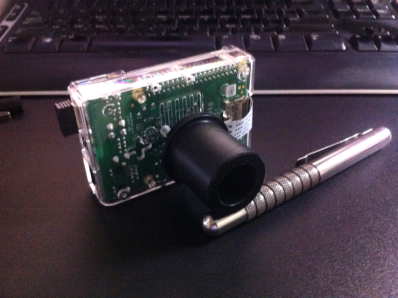
I’m a great believer in the importance of programming as a central component of education. But I’m excited that the timing has worked out so that we’re able to give the Raspberry Pi community-with its emphasis on education and invention-the very first chance to put the Wolfram Language into action. Quite soon the Wolfram Language is going to start showing up in lots of places, notably on the web and in the cloud. In effect, this is a technology preview: it’s an early, unfinished, glimpse of the Wolfram Language.

Today I’m pleased to announce a step in that direction: working with the Raspberry Pi Foundation, effective immediately there’s a pilot release of the Wolfram Language-as well as Mathematica-that will soon be bundled as part of the standard system software for every Raspberry Pi computer. In closing, I must also say this: Your question was interesting enough to research, but strikes me as a silly idea for anyone with an even moderately capable laptop or desktop machine.Last week I wrote about our large-scale plan to use new technology we’re building to inject sophisticated computation and knowledge into everything. Please refer to the sagemath GitHub site for other details. sagemath may also be run from the shell's command line interface. Shows us that version 8.6-6 is available as a direct install using apt, while the current version is 9.2, and could (probably) be built from source. If a "Matlab-clone" won't meet your needs, the package sagemath is more like Mathematica, and is also in RPi's package repository: apt-cache showpkg sagemath The project has an incoherent approach to managing the extensions which will waste your time. My personal experience with some of its "package extensions" is negative - very negative in fact. My positive recommendation for Octave ends with Octave itself. I've found Octave a decent package to use, but I don't do anything "heavy duty".

This means you can run it from either the Lite or the Desktop distros of RPi OS. Octave can be run from either the GUI, or the command line. Informs us that the version is 4.4 (the current build is 6.1). Octave is in RPi's package repository: apt-cache showpkg octave If your needs for Mathematica can be satisfied by Matlab, then you may find GNU's Octave distribution worth a try - Octave tries its best to be a clone of Matlab.

I'm not a user of Mathematica, but I have used Matlab in the past.


 0 kommentar(er)
0 kommentar(er)
